(eco) mourning / memory / ritual
Workshops are M/T/Th/F from 9:30am-12:00pm, 9:00am start for Printshop.
Monday, 6/19
1:00–2:30 Opening Panel: (eco) mourning / memory / ritual
Panelists: Anne Waldman (chair): Gabriel Octavia Rucker; CAConrad; Sherwin Bitsui
3:00–4:00 :: MFA Lecture :: Richard Froude
Tuesday, 6/20
1:00–2:00 :: Artist Talk :: Ariana Reines
2:30–3:30 :: Artist Talk :: April Sheridan
7:00–9:30 :: Faculty Reading:
Andrew Schelling; Stella Corso; Gabriel Octavia Rucker; Dan Beachy-Quick
Wednesday, 6/21
1:00–3:00 :: Divinatory Poetics :: Saterstrom
Thursday, 6/22
1:00–2:30 :: Artist Talk :: Dan Beachy-Quick
3:00–4:30 :: Student Panel
7:00–9:30 :: Faculty Reading:
Cass Eddington; Michael Joseph Walsh; Sherwin Bitsui; CAConrad
Friday, 6/23
1:00–2:30 :: Lecture :: Margaret Randall
3:00–4:00 :: Colloquium 7:00–9:30 :: Student Reading
Saturday, 6/24
7:00–9:30 :: Faculty Reading:
Richard Froude; Ghayath Almadhoun; Margaret Randall; Ariana Reines
Workshop Faculty for Week 2
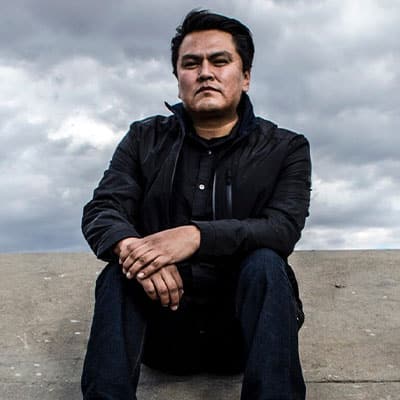
Landscapes Woven Skyward with Language: Contemporary Diné Spatial Poetics :: Sherwin Bitsui
This workshop explores Indigenous poetics, focusing on Contemporary Diné poetry, language, and worldview. Participants will blend theory and practice to create unique poems inspired by ecological immersion. We will establish a harmonious (or dissonant) connection between poetry and place. This workshop provides dedicated time and space for reflection on nature alongside the industrialized world. Participants will develop new poems and techniques, expanding their creative horizons.
Sherwin Bitsui (Diné) is originally from White Cone, Arizona, on the Navajo Reservation. He is Diné of the Todich’ii’nii (Bitter Water Clan), born for the Tl’izilani (Many Goats Clan). He is the author of Shapeshift (University of Arizona Press, 2003), Flood Song (Copper Canyon Press, 2009), and Dissolve (Copper Canyon Press, 2018). His honors include a Lannan Foundation Poetry Fellowship and a Native Arts & Cultures Foundation Artist Fellowship. He is also the recipient of a 2010 PEN Open Book Award, an American Book Award, and a Whiting Award. He teaches at the Institute of American Indian Arts, and joined the faculty at Northern Arizona University in the fall of 2019.
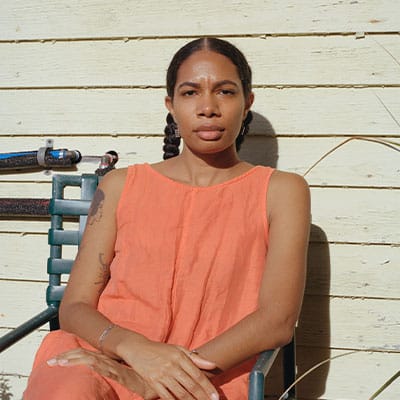
The Home and The World :: Gabrielle Octavia Rucker
eco- from Greek oikos “household, dwelling place, habitation”
poetic (adj.) from Greek poiētikos, literally “creative, making, productive,”
Ecopoetics. Making home. Homemade. In this workshop we will build a home. On the page, in the mind, off the page, in the body. Together we will ponder, rebuild, redecorate, demolish, and mourn our concepts of home, childhood, care, ferality, domestication, captivity, social (dis)order, and environment. Authors and artists we’ll look to for inspiration might include, Ashanti Alston, Bhanu Kapil, Donika Kelly, Malidoma Patrice Some, Ladan Osman, Taylor Johnson, Francis Alÿs, Lebohang Kganye, and more.
Gabrielle Octavia Rucker is a writer, editor and teaching artist from the Great Lakes currently living in the Gulf Coast. She is a 2020 Poetry Project Fellow and 2016 Kimbilio Fiction Fellow. Her debut poetry collection, Dereliction, is currently available via The Song Cave.
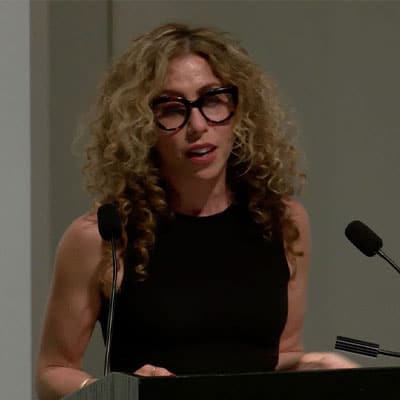
Solar Energy :: Ariana Reines
Ariana Reines is a poet, playwright, performing artist, and translator. Her books include A Sand Book (2019), winner of the 2020 Kingsley Tufts Prize and longlisted for the National Book Award. Other books include The Cow (Alberta Prize, 2006), Coeur De Lion (2007), and Mercury (2011), all from FENCE, and The Origin of the World (2014) from Semiotext(e). Her Obie-winning play Telephone (2009) was commissioned by The Foundry Theatre and has been performed in Norwegian translation (2017) and at KW Berlin (2018) among others. Current commissions include Possession (2023), a sculpture and performance collaboration with Liz Magic Laser, at Pioneer Works in Brooklyn, NY, and Divine Justice (2022), a 24-hour theatrical environment at Performance Space New York. She has taught at Columbia University, the European Graduate School, NYU, Tufts, Naropa, The New School, Yale, and many others. In March 2020, while a Divinity student at Harvard, she created Invisible College, a hub for poetry, art, & sacred study online. She lives in Upstate New York.
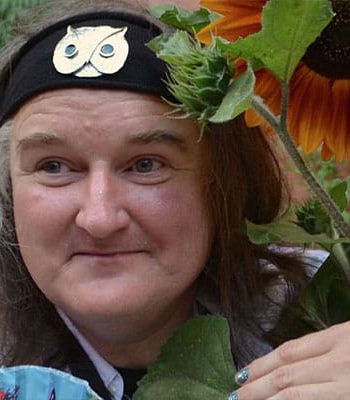
Elemental Transmissions Through (Soma)tic Poetry Rituals :: CAConrad
How are the elements held in our bodies and the land, air, and water, and what bridges us to the raw materials that make us breathe, live, and spark? During our four days of the workshop, we will build writing rituals centered on the elements of Fire, Earth, Air, and Water. Crystals given to each student will help us aim our focus on making poems and become tools for building an elemental crystal library. CAConrad has created writing rituals using the night sky to design homemade star constellations, another ritual of dreaming with crows, and many others, from talking with trees and ghosts, translating Shakespeare’s sonnets with crystals, and coping with the destroyed wilderness of our planet. Former US-Poet Laureate Tracy K. Smith wrote in The New York Times, “CAConrad’s poems invite the reader to become an agent in a joint act of recovery, to step outside of passivity and propriety and to become susceptible to the illogical and the mysterious.”
CAConrad has worked with the ancient technologies of poetry and ritual since 1975. They are the author of 9 books, including AMANDA PARADISE: Resurrect Extinct Vibration (Wave Books, 2021), which won the 2022 PEN Josephine Miles Award. They received a 2022 Ruth Lilly Poetry Prize, a Creative Capital grant, a Pew Fellowship, and a Lambda Award. They exhibit poems as art objects with recent solo shows in Spain and Portugal, and their play The Obituary Show was made into a film in 2022 by Augusto Cascales. UK Penguin published two books in 2023, and a new collection of poetry is forthcoming from Wave Books in 2024 titled Listen to the Golden Boomerang Return. Visit them online at https://linktr.ee/CAConrad88
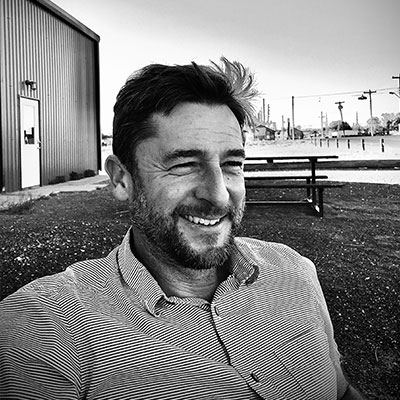
The Lyre in the Undergrove: Lyric, Death, and the Poem as Offering :: Dan Beachy-Quick
Orpheus—mythic poet-priest, far more human than divine—sang his way to the underworld to bring home his dead wife, Eurydice. His song—it’s said—stopped the eternal torments of those in Hades: Sisyphus’s boulder stayed still at the top of the hill, Tantalus put the grape in his mouth. We know how the story ends. The poet looks back as he steps into daylight and loses his love in the darkness. Our last image of the poet? His head singing as it floats down the river, severed by maenads from his body. What the story at its simplest might suggest is that lyric practice and death have been tangled together in the human mind for as long as memory and myth bear back through the countless ages. At the deepest root of Greek religion, we find not beneficent gods reciprocating with kindness the offerings given them, but ghosts, spirits, torn souls—and the offerings given to them weren’t meant to invite succor, but to avert their wrath. The poem can be such an offering, recognizing and averting what we fear the most. It can also be a sacrifice of other kind—an invitation, a prayer, a plea; a way of speaking to the dead; a mourning ritual; a way of garnering advice from the underworld. We’ll spend our days reading, thinking, and writing ourselves nearer such ancient complications. Reading will include Jane Ellen Harrison, Federico Garcia Lorca, Maurice Blanchot, Sir Thomas Browne, Mircea Eliade, Jack Spicer, among others.
Dan Beachy-Quick is the author, most recently, of a collection of essays, fragments, and poems, Of Silence & Song (Milkweed, 2017). He has written six books of poetry, gentlessness, Circle’s Apprentice, North True South Bright, Spell, Mulberry, and This Nest, Swift Passerine, six chapbooks, Shields & Shards & Stitches & Songs, Apology for the Book of Creatures, Overtakelesness, Heroisms, Canto and Mobius Crowns (the latter two both written in collaboration with the poet Srikanth Reddy), a book of interlinked essays on Moby-Dick, A Whaler’s Dictionary, as well as a collection of essays, meditations and tales, Wonderful Investigations. Reddy and Beachy-Quick’s collaboration has recently been released as a full-length collection, Conversities, and he has also collaborated with the essayist and performance artist Matthew Goulish on Work From Memory. In 2013, University of Iowa Press published a monograph on John Keats in their Muse Series (editor Robert D. Richardson) titled A Brighter Word Than Bright: Keats at Work, and Coffee House Press published his first novel, An Impenetrable Screen of Purest Sky. He is a contributing editor for the journals A Public Space and West Branch. After graduating from the University of Denver, he attended the Iowa Writer’s Workshop. He has taught at Grinnell College, The School of the Art Institute of Chicago, and is currently teaching in the MFA Writing Program at Colorado State University. His work has been a winner of the Colorado Book Award, and has been a finalist for the William Carlos Williams Prize, and the PEN/USA Literary Award in Poetry. He is the recipient of a Lannan Foundation residency, and taught as Visiting Faculty at the Iowa Writer’s Workshop in spring 2010. He was one of two Monfort Professors at CSU for 2013-2015, and his work has been supported by the Guggenheim Fellow and by a Creative Fellow of the Woodberry Poetry Room at Harvard University.
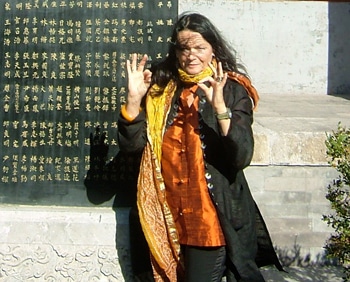
Dharma Gaze: Kali Yuga Sutras :: Anne Waldman
in the mind of the poet all times are contiguous…..
*
We must talk now. I am no longer sure of the words,
The clockwork of the world.
George Oppen
So much of the Modernist & post-mod poetics we inherit comes from very palpable discoveries in the 19th Century and what we still feed off: the decipherment of the Rosetta stone, the undeciphered Indus Valley script, power of the Devanagiri, the “omphalos stone,” the discovery of cuneiform Gilgamesh, & Innana/Ishtar ritual hymns, Endueanna. And discovery of Libraries as ancient as cities, and of the Chaldeans’ sense that chaos meant “without a library.” And the crimes of destruction and ruin of civilization, cultures, art, heritage. We also might consider recent decipherments within Mayan codices, and Buddhist practice and visualization that go back 2,500 years , as well entheogen’s hallucinatory and healing practices. What are the contemporary discoveries that inflect and infect our poet consciousness? Let’s look into that forward and backward motion of poetry and intellectus to create our own “sutras”. We will investigate, dream, collaborate, record, meditate with our “cri de coeur”, our broken heart. What is our adhesiveness in this precarity? What is our science, our spirit? How are we contemporary with our time? Texts: NEW WEATHERS: Poetics from the Naropa Archive, (editors Waldman and Gomis); On Freedom. Maggie Nelson; The Fire Next Time, James Baldwin.
Triple Aries April 2, 1945. Father John fought Nazis in WW 2 in Germany, mother Frances LeFevre Sikelianos Waldman who spent a decade in Greece in the Delphi Ideal community of Greek poet Angelo Sikelianos, was living alone on Macdougal Street, Greenwich Village, NYC, husband at war in Germany, went to husban’s in-laws in New Jersey where grandfather Waldemann was glassblower at Wheatons’s Glass factory, for birth, then back to New York City “bohemian” Village. Anne Waldman sat on great singer Lead Belly’s knee as baby. She grew up with books of poetry, first poetry reading at Izzy Youngs Folklore Center, fell in love with jazz and progressive politics. Blake, Rimbaud. Steve Lacy in her extended family. Started writing seriously as teenager with Beat generation and New York School out her door. Jonathan Cott her best friend. College education of literature, performance, loved Blake, Romantics, Psychology studies, but more engaged with reach of world literatures, oral world epics, litany, chant, trance, shamanism, entheogens. Modernists, Gertrude Stein, Mina Loy, Franz Fanon, James Baldwin, open form New American Poetry of Beats and New York School and Black Mountain- O’Hara, Ginsberg, Amiri Baraka, Burroughs, Kyger, Olson, Robert Duncan, Bob Dylan. Was a decade’s working founder then Director of The Poetry Project in 1968 at the historic Dutch Reformed St Mark’s Church-the-Bowery home to poets, dancers artists, filmmakers, painters, activists. AW has always championed the bringing of poetry as well as protest into public space. Co-founded the Jack Kerouac School of Disembodied Poetics program at Naropa Institute in Boulder, Colorado on the spine of the North American continent, with Allen Ginsberg, and with Diane di Prima in advice early years. A student of Chogyam Trungpa, Rinpoche, and sawet lama Jadtral, Rinpoche, Waldman is grateful for the wisdom teachings of the Tibetan Buddhist lineages. Waldman continues to work during summers as Artistic Director of the Summer Writing Program, and guardian of its Audio/Video Literary Archive. She was arrested at Rocky Flats with Daniel Ellsberg and Allen Ginsberg in the 1970s, reading poems that challenged deliveries of plutonium for the manufacturing of pits for nuclear warheads. She was part of protests during the Viet Nam War and at the Chicago Seven trail. And all the current doings of counter-cultural intervention in subsequent times, Occupy Wall Street. She works with the Rizoma collective in Mexico City. Author of over 60 volumes of poetry, poetics and anthologies including the 1000 page epic The Iovis Trilogy: Colors in The Mechanism of Concealment (Coffee House Press) which won the Pen Center Literary Prize for Poetry. Penguin has published her books over many years, including Trickster Feminism, Manatee/Humanity and Marriage: A Sentence. Her album SCIAMACHY was released in 2020 by Fast Speaking Music and the Levy-Gorvy Gallery in NYC, which Patti Smith has called “Exquisitely potent. A psychic shield for our times.” Recent: an anthology: NEW WEATHERS, Poetics from the Naropa Archive (with Emma Gomis), Nightboat 2023, Bard, Kinetic, Coffee House 2023, forthcoming: Mesopotopia 2024, Penguin. New album EKAJATi in the works. Opera BLACK LODGE Waldman created the libretto for, with music by composer David T. Little had its premiere at Opera Philadelphia Oct 1 & 2, 2022. Works with partner Ed Bowes on movies: Walsung productions, and Archive. Forthcoming: Punch In The Gut of A Star (Ed Bowes).
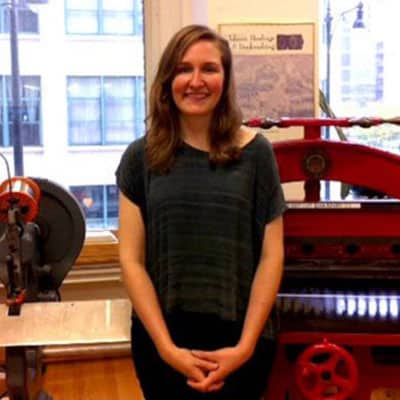
The Eroded Library / Materiality as Strategy :: April Sheridan
Harry Smith Print Shop
Indeed. It moves. And as it moves, it can disrupt durable associations. –Kameelah Janan Rasheed
But now that I went ahead and did it after asking what it was for
Now it’s even worse than before —Arthur Russell
Taking work we’d like to rebuild, we will spend time deconstructing language and rebuilding it in new ways. Paper will crumple and be ironed out, we will hone and hammer, loosen and tighten, sometimes employing all opposing strategies at the same time. Working towards a series of small books through the use of editing and letterpress printing (and sometimes entropy) an older work will be transformed.
April Sheridan is the Special Collections Manager for the Joan Flasch Artists’ Book Collection at the School of the Art Institute of Chicago, where she curates the collection and provides instruction. She is a letterpress printer and book producer who is particularly interested in the artistic and experimental possibilities of the broadside and its historic place in American culture. For ten years she ran the letterpress printing, papermaking, and bookbinding studios at the Center for Book and Paper Arts at Columbia College Chicago. As an advocate for book arts education she has spoken at Hamilton Wood Type and Printing Museum Wayzgoose/Educators Conference, Letterpress: Forward Thinking Conference at St. Bride Library in London, and at the &Now Conference at CalArts. She has served on the boards of the American Printing History Association, Inland Chapter, and the WasteShed, and was previously assistant director of the Chicago Printers Guild.
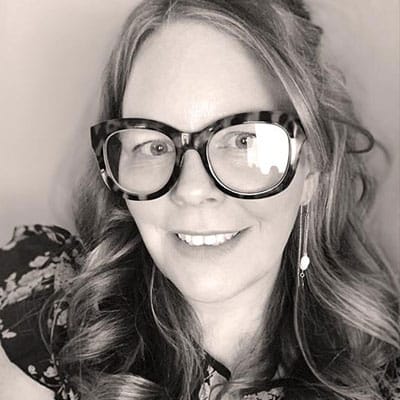
Divinatory Poetics :: Selah Saterstrom
Selah Saterstrom is the author of five books: Rancher, Ideal Suggestions: Essays in Divinatory Poetics, Slab, The Meat and Spirit Plan, and The Pink Institution. She teaches and lectures across the United States, and is the director of Creative Writing at the University of Denver.
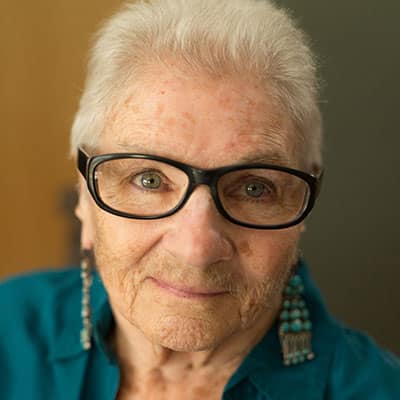
Special Guest :: Margaret Randall
Poet, independent scholar, photographer, translator, and social activist MARGARET RANDALL was born in New York City and grew up in New Mexico. Taking active part in the Mexican student movement of 1968 and then living in Cuba for eleven years and Sandinista Nicaragua for four, Randall returned to the United States in 1984, only to face deportation when the government declared her writings “against the good order and happiness of the United States.” With the support of many, she won her case in 1989. Randall is the author of more than two hundred books, including Che on My Mind (2014), Time’s Language: Selected Poems 1959-2018, and I Never Left Home: Poet, Feminist, Revolutionary (2020). She has received the Poet of Two Hemispheres award from Poesía en Paralelo Cero, Quito, Ecuador, AWP’s George Garrett Award, Albuquerque’s Creative Bravo Award, and an Honorary Doctorate from the University of New Mexico, among other recognitions.

Special Guest :: Ghayath Almadhoun
Ghayath Almadhoun is a Palestinian poet born in Damascus, Syria, and emigrated to Sweden in 2008. Now he lives between Berlin & Stockholm.He has published four poetry collections in Arabic, and his work has been translated into more than 20 languages. Almadhoun collaborated with other poets and artists, and his poetry has been part of work by US artist Jenny Holzer, German musician Blixa Bargeld, and others.Almadhoun also works in poetry films, and his latest poetry film Évian won the Zebra Best Poetry Film Award 2020.His latest collection Adrenalin, published in English by Action Books in 2017, was among SPD Poetry Bestsellers in the US and was nominated for the 2018 Best Translated Book Award.
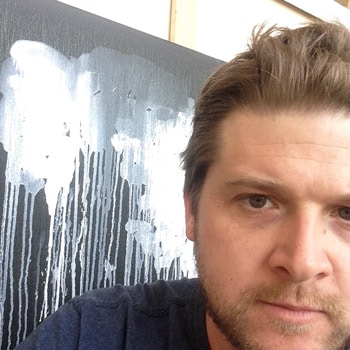
Harry Smith Recording Studio
Summer Writing Program participants (in select workshops each week) may have the opportunity to work in Naropa University’s Recording Studio. Sometimes the projects entail setting their work to music, or recording spoken word poetry, or recording their own poetic songs; oftentimes the recording studio projects are group collaborations, collective sound installations, and other experiments withthe phonotext. Over the year Fast Speaking Music has produced several audio anthologies of student and guest faculty’s recorded work; the Harry’s House cd compilations; here is the link to Volume III: https://spoti.fi/3v19mQP
Ambrose Bye is a musician, engineer, and producer living in Mexico City, and is the co-founder of Fast Speaking Music with Anne Waldman. He has produced over 20 albums and frequently collaborates with poets. Recent productions include “Among the Poetry Stricken” (Clark Coolidge and Thurston Moore) and “Artificial Happiness Button” (Heroes are Gang Leaders). He has worked and performed at Masnaa and the Ecole de la Literature in Casablanca, Le Maison de Poesie in Paris, the fieEstival Maelstrom in Brussels, the Henry Miller Library in Big Sur, Pathway to Paris at Montreal POP 2015, and Casa Del Lago in Mexico City. He has also been involved in the recording studio and workshops at the Summer Writing Program at Naropa University since 2009.
Fast Speaking Music

